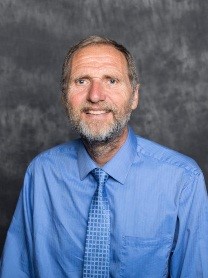
Photo by Clay Banks on Unsplash
PHFN 615 PRINCIPLES OF EPIDEMIOLOGY
The course is a study of the general principles of epidemiology that involves the understanding the frequency, distribution, and etiology of acute and chronic diseases, and the method for disease surveillance and control. Emphasis is on the epidemiology of lifestyle-related diseases and how to relate epidemiology to a more clinical setting.
Units: 3
|
WHO NEEDS THIS COURSE? Graduate students:
This course may also be taken by
|
TIME INVESTMENT 1.5 hour per day – 5days per week – 7.5 hours per week |
COURSE OUTCOMES
Upon completion of this course, the students will be able to:
- Define key concepts related to epidemiology and how epidemiology contributes to improve health.
- Understand the meaning to measures or quantify the occurrence of health phenomena in a
- Explain the types of epidemiological study designs (descriptive, analytic and experimental designs) representing various ways of gathering public health data or information related to health phenomena.
- Identify the factors that cause and prevent acute and chronic
- Apply epidemiological knowledge in the behavior modification of people who have lifestyle-related problems.
TOPICS TO COVER
| Week 1 |
History and Scope of Epidemiology. Modes of Transmission of Diseases and Surveillance |
| Week 2 |
Occurrence and natural history of a disease, validity of screening test |
| Week 3 |
Epidemiologic Study Designs: Observational, Cohort |
| Week 4 |
Epidemiologic Study Designs: Comparing Studies and Assessing Preventive and Therapeutic Measures |
| Week 5 |
Trials: Randomization, Risk, Association and Causation |
| Week 6 |
Bias, Confounding, Factors in Disease causation |
| Week 7 |
Using Epidemiology to evaluate Health Services and for Screening Programs |
| Week 8 |
Epidemiology and Public Policy, Ethical and Professional issues in Epidemiology |
COURSE FACILITATOR
 |
EDWARD NATHAN, DrPH, MBBS, MPH Dr. Edward Nathan is the resident Public Health Doctor in Penang Adventist Hospital. He completed his primary and secondary education in Penang, Malaysia and then continued his medical education at Christian Medical College in Vellore, India in 1987. He worked as a Medical Doctor in the Department of Surgery, Orthopedics and also Cardio-Thoracic Surgery before finally settling into Public Health. To further his expertise in the field of Preventive Medicine, Dr Edward became a student at Loma Linda University, California, USA, completing his MPH and DrPH in Preventive Care. His special interest in Preventive Medicine is in the field of health risk assessment and corporate wellness as well as helping those who want to quit the smoking habit. As the saying goes, “Prevention is better than cure”, therefore Dr Edward likes to educate the public on health education issues so that the public are equip with knowledge on disease prevention. He has been involved in this field since 2001, educating individuals on their health using the HRA as well as giving public health talks both to the public as well as to the health professionals like doctors, nurses and pharmacists. He has been a member of the CMC Vellore Association & Council that governs Christian Medical College, Vellore, India – a premier medical institution in India since 2009. He also has an interest in Research and started the Adventist Clinical Research Center in Penang Adventist Hospital. |
COURSE DEVELOPER
 |
KLAUS IRRGANG, DrPH Klaus Irrgang is the original developer of this online course. He is now currently serving as an associate professor at Burman University in Canada. He finished his doctoral degree in Public Health in Loma Linda University, California. He served the Public Health department of AIIAS as a faculty for several years. |
